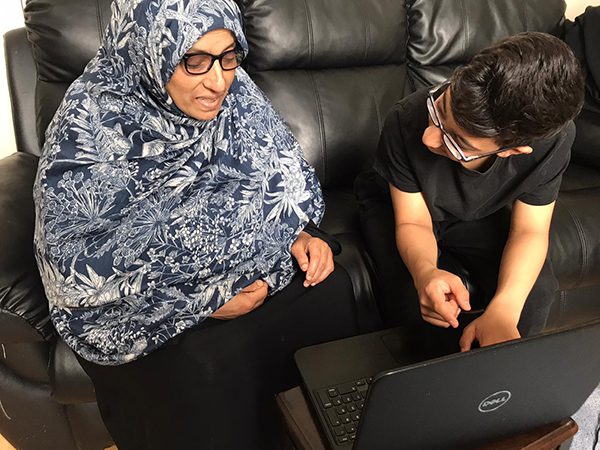We’ve returned to normality. Some have gone back to offices, and others are working remotely or hybrid. For many elderly people, going back to the pre-lockdown ‘normal’ meant a return to the isolation and loneliness that worsened during the pandemic. For some young people in Tower Hamlets, the pandemic was a reminder of the need to think of others, especially the vulnerable.
Our young people found they could contribute to something productive and rewarding during this difficult time, such as food deliveries or medicine drops. As things normalise, there will be less of us who can take up the voluntary work that we had previously been free to do. Now it is even more important to look out for older friends, neighbours and relatives and be vigilant of their wellbeing to make sure they’re okay.
A UN policy published during the pandemic highlighted the need to address the impact of Covid-19 on older people many of whom live alone without access to the internet. Then and now they will need more support than ever before.
A community solution
Our inter-generational project, Mind the Gap (MTG), is all about bringing the young and old of our local community together to enrich each other’s lives. This became significantly difficult during the lockdown, with one of the biggest barriers has been to enable older members of our group to get online.
We ask ourselves what the new norm will look like for these valued members of the community, and how our young leaders can make a lasting impression on their lives.
We want to help address the impact that coronavirus is having on our elderly. Using the money raised, the MTG team seeks to purchase digital tablets so that our associates can connect with loved ones and other members of Mind the Gap. Who better to do this than young people; with their tech-savvy knowledge, they are certainly at a good place to help others facing barriers.
That is why our young people-led social action group Mind the Gap started their crowdfunding campaign this week, keen to get the older members of our community online by acquiring digital tablets. It doesn’t stop there because we will also have personal 1-to-1 support to get them started and then hold weekly video calls connecting our younger with older residents to maintain existing social links.
By providing access to the internet, practical training and a supportive network, we hope to bring some much-needed connectivity for our community. It’s not just to participate in our sessions, but opening doors to other opportunities in engaging with the rest of the world. In a future that is likely to become more dependent on virtual conversations, we must not leave the older generation behind.

